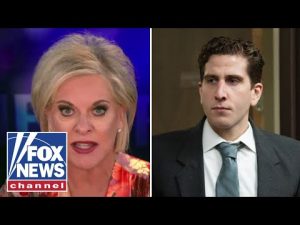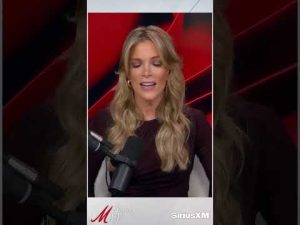In an interview that felt more like a rollercoaster ride than a sit-down chat, Hunter Biden has once again found himself at the center of a media firestorm. For three hours, he ranted and raved in his longest interview to date, unleashed since his father, the former President, departed the presidential race. While some might see him as a tragic figure, others can’t help but notice the glaring disparities between his life and the everyday struggles faced by millions of Americans. As he spins tales of adversity that seem to hit all the wrong notes, one can’t help but think, “Where’s the accountability?”
Growing up with a father who served as both a seven-term senator and president, Hunter certainly had advantages that most would envy. Picture this: doors flung wide open, access to top-tier education, and a life that should have prepared him for success—yet here he is, resembling a 55-year-old man with the maturity of a toddler who refuses to take responsibility for his actions. Calling him a “father and grandfather” might induce sympathy but when one looks closer, it’s almost as though he’s been stuck in a time capsule filled with denial and excuses.
As Hunter rambled on, he casually breezed over one key point—his infamous laptop saga. The laptop that ignited a political firestorm might as well have been left in a time machine for how detached he seems from its implications. He couldn’t quite recall how it ended up in a Delaware repair shop. And while he insists he’s been clean and sober for six years— a hopeful affirmation—it somehow feels overshadowed by the lifestyle he describes. Regular folks dealing with their struggles must wonder how a “clean” man could have such a towering stack of unaccounted-for possessions, including that elusive laptop.
Then there’s Hunter’s take on his “art career,” which he likens to that of great masters. By the time he mentioned painting in his garage while pretending to be a modern-day Monet, one couldn’t help but stifle a chuckle. The idea that people pony up to half a million dollars for his paintings seems to be lost on him as a transparent ploy to curry influence and launder money rather than genuine artistic merit. If only buyers were basing their decisions on his talent and not his last name, how different things might be! But alas, in this peculiar narrative, he remains blissfully unaware of the optics.
Transitioning from one denial to another, Hunter finally addressed his father’s presidency after two hours of deflection. The responses were eerily vague. Hunter could easily tell us about how “great” Joe is doing, but when pressed further, the walls closed in tighter than a clam in a sinking ship. It was as if he were reading from a script designed to deflect attention from any concerns about his father’s mental acuity or the potential cover-ups clouding their administration. The irony here is palpable; while aiming to clear the air, he only seemed to deepen the fog.
As listeners sift through the emotional and absurd turns this interview took, it feels clear that this was not just Hunter talking; it was a carefully orchestrated performance by the Biden family. Perhaps the goal was to shift blame to the media, the public, or even the broader political landscape. After all, wouldn’t the smartest man in the room—at least according to his own assessment—know how to spin the narrative in a way that fits the family agenda? While Hunter claims to be talking on his own accord, the sense of being the reluctant mouthpiece for a greater power frames this interview as more than a personal rant; it feels like an attempt to rehabilitate a precarious family image in the midst of political woes.







